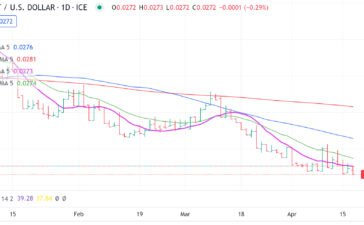Indonesia will seek to buy rice from other countries if Thailand does not honour an earlier agreement to sell the grain, Trade Minister Mari Pangestu said yesterday.
The Indonesian ambassador to Thailand and an official from state grain procurement agency Bulog were to discuss the reported cancellation of a proposed government sale of rice to Indonesia, said Ms Pangestu.
Tikamporn Nardworatat, who oversees government-to-government contracts at the Department of Foreign Trade, said there was a non-binding memorandum of understanding (MoU) to export 300,000 tonnes of rice to Indonesia, but no firm deal.
“An MoU is not legally binding. There is no cancellation on any deal,” he said.
Commerce Minister Kittiratt Na-Ranong said the agreement had been signed by the Public Warehouse Organisation (PWO) during the caretaker term of the Abhisit Vejjajiva government. It was not endorsed by the cabinet and neither he nor his predecessor Porntiva Nakasai signed the deal.
The PWO chief who had signed the MoU resigned earlier this month to pave the way for a reshuffle of political officials by the new government.
Under the deal, the PWO agreed to sell 15%-grade white rice to Bulog at US$560 a tonne. The market price today is $590-600 a tonne.
Ms Pangestu said Indonesia still had several alternative rice sources instead of Thailand, such as Vietnam, Pakistan and India.
“We will discuss rice issues with the Indian minister who will visit Indonesia on Oct 4,” she said.
Deddy Saleh, director-general of Foreign Trade at the Indonesian Trade Ministry, said the Jakarta government expected the Thai side not to cancel any contract that had previously been agreed by the two parties, even though the deal was signed under the former Thai government.
“A government succession does not mean that the new government can cancel any agreement just like that,” he said.
“If the reason is like that, how about the other previous agreements which have been signed a long time ago? Can they be cancelled directly after the new government comes to power?”
Mr Deddy also said he had not received official information on the matter from the Thai government, adding that this involved trust between two parties and there could be wide-ranging consequences if it was true.
“First, it has to be confirmed and clarified to Thai government before we take any necessary actions,” he said.
The confusion will add to the controversy surrounding the Pheu Thai government’s rice intervention policy, which has sent prices surging.
Prices of 100% B-grade Thai white rice were being quoted this week at between $620 and $660 a tonne, free on board (FOB), compared with $595 last week, exporters said. The grade hit $640 early this month, the highest in nearly three years.
The government has promised to buy paddy at 15,000 baht a tonne from Oct 7 to Feb 29, which exporters say could lift the export price as high as $870 a tonne, making Thai rice less competitive in the world market.
That prospect has already pushed up prices elsewhere in the region and economists fear it could reignite consumer price inflation.
In another development, the Commerce Ministry is studying the possibility of expanding the mortgage scheme beyond rice to cover tapioca based on stepped guaranteed prices to ensure price stability, according to permanent secretary Yanyoung Phuangrach.
With a clear mortgage policy in place for the crop, buyers would not be able to push down prices, he said.
“The guaranteed prices will be close to market prices as they serve only to create price stability. The prices, which may be set in steps, have not yet been finalised because the government has to evaluate production and flood impacts first,” he said.
The scheme would replace the price insurance programme implemented by the previous government. The current cassava price is around two baht a kg.
Poom Sarapol, a deputy commerce minister, has instructed the Internal Trade Department to discuss the cost structure and method of price intervention with farmers’ and traders’ representatives.
Niyom Chulaserikul, president of the Thai Tapioca Trade Association, said cassava plantations were estimated at 7.37 million rai for a harvest of 25.11 million tonnes, 3 million tonnes shy of demand.
The association has worked with related agencies to solve pest problems and ensure annual production of 30 million tonnes over the next three years, he said.
Source: Bangkok Post





